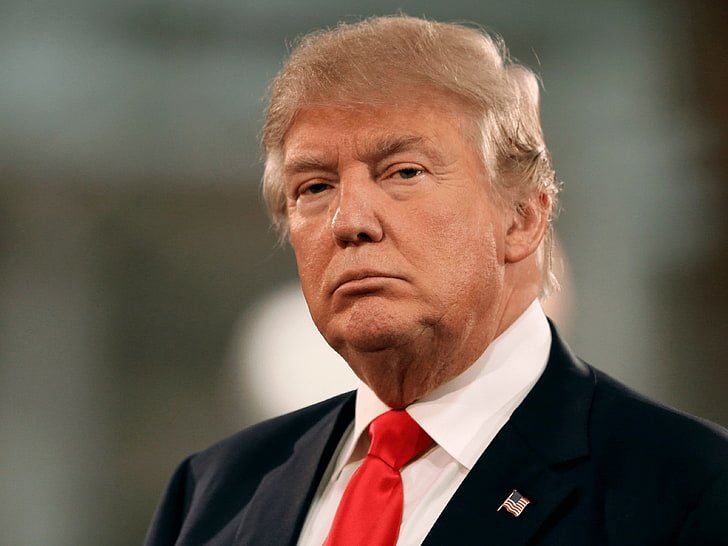India Accused of Targeting Bengali-Speaking Muslims in Mass Deportation Drive: A 1700-Word Report
By AFP | Updated June 27, 2025
AHMEDABAD/NEW DELHI/DHAKA – In recent months, hundreds of Bengali-speaking Muslims living in India have been forcibly deported to Bangladesh, with growing condemnation from human rights groups, civil rights lawyers, and activists. Many of those expelled say they were born in India and have spent their entire lives in the country, yet they were rounded up, detained without trial, and pushed across the border—often at gunpoint.
Indian officials have justified the actions by claiming the individuals are undocumented migrants from Bangladesh. However, critics argue this campaign is part of a broader ideological agenda targeting Muslim minorities—particularly those who speak Bengali.
A Controversial Crackdown Without Trial
The deportations follow an expansive and unprecedented security sweep across India after the April 22 terror attack in Indian Illegally Occupied Jammu and Kashmir (IIOJK), where 26 people, mostly Hindu pilgrims, were killed. Blaming Pakistan for the incident, the Indian government initiated a nationwide crackdown, which has since evolved into what many are calling a discriminatory purge of Bengali-speaking Muslims.
Police raids in major cities like Ahmedabad, Mumbai, and border states such as Assam and Tripura have led to the detention of thousands. While many were eventually released, hundreds—if not more—were reportedly sent across the border into Bangladesh without any formal legal process.
Bangladesh has confirmed that over 1,600 people have been forced across its border since May. Indian media sources put the figure closer to 2,500. In many cases, those deported were Indian citizens with valid government-issued identification.
‘We Thought We Were Going to Die’
One such victim, Rahima Begum, a 50-year-old resident of Assam, shared her harrowing experience after being picked up by Indian police in late May.
“I’ve lived in Assam my whole life. My parents, my grandparents — all were born here,” she told AFP. “I don’t know why they would do this to me.”
She and five other Muslims were detained, then blindfolded and taken under the cover of darkness to a swampy area near the Bangladesh border. “They told us to crawl toward a village in the distance,” she said. “They said, ‘If you stand up, we’ll shoot you.’”
Once on the Bangladeshi side, they were captured by local villagers and handed over to border guards, who reportedly beat them and ordered them to return to India.
“As we tried to cross back, shots were fired from the other side,” Rahima said. “We thought: This is it. We’re all going to die.”
Miraculously, she survived and was later dumped back near her village in Assam with a warning: keep quiet or face worse consequences.
A Systematic Pattern of Targeting Muslims
According to prominent rights activist Harsh Mander, the deportations are not isolated incidents but part of a deliberate ideological campaign.
“People of Muslim identity who happen to be Bengali-speaking are being targeted as part of an ideological hate campaign,” Mander said. “You have thrown millions into this existential fear.”
This fear is especially intense among India’s estimated 200 million Muslims, who already face growing marginalization under the rule of Prime Minister Narendra Modi’s Hindu nationalist Bharatiya Janata Party (BJP).
Muslims from Assam and West Bengal—regions with a high number of Bengali speakers—say they feel they are being singled out. The rhetoric from top Indian officials has exacerbated these fears. In past speeches, BJP leaders including Amit Shah have referred to immigrants as “termites” and “infiltrators.”
‘I Was Born Here, Yet They Beat Me’
Another victim, Nazimuddin Mondal, a 35-year-old construction worker, said he was working in Mumbai when he was arrested, flown on a military aircraft to Tripura, and then expelled into Bangladesh.
“I showed them my Aadhaar ID card. I told them I was born in West Bengal. But they didn’t listen,” he said. “They beat us with batons when we insisted we were Indians.”
Mondal managed to cross back into India with the help of relatives but remains fearful of being picked up again. “I don’t even leave the house now. Who will protect us?”
India’s Deportations Draw Legal, Global Criticism
Legal experts in India have voiced serious concerns over the legality of these deportations. According to Sanjay Hegde, a senior Supreme Court lawyer, Indian law does not permit deportation without a legal hearing or confirmation from the receiving country.
“You cannot deport people unless there is a country willing to accept them,” he said. “This is not just morally wrong—it’s unconstitutional.”
Bangladesh’s Border Guards have reportedly sent back over 100 people because they were found to be Indian citizens. Yet, the deportations continue, often under the radar and without any official records or court orders.
The UN and several human rights organizations have demanded investigations into the alleged abuses. The Human Rights Watch (HRW) has called it a “blatant violation of international refugee and human rights law.”
Political Tensions Between India and Bangladesh Fuel Crisis
The situation is further complicated by deteriorating relations between India and Bangladesh. In 2024, a massive uprising in Dhaka toppled the pro-India government. Since then, ties between the two nations have cooled dramatically.
While Bangladesh has remained largely quiet on the deportations publicly, officials within the Border Guards have expressed frustration.
“We are being forced to clean up India’s internal mess,” one anonymous officer told local media. “Many of these people are not even Bangladeshi.”
With nearly the entire length of Bangladesh’s border encircled by India, the country has limited options to manage the sudden influx.
Gujarat and Assam: Epicenters of the Crackdown
According to official statements from Indian authorities, more than 300 people have been deported from Assam alone in recent weeks. In Gujarat, police chief Vikas Sahay said more than 6,500 people have been rounded up.
Though many of them were later released, activists claim the majority were targeted based on language and religion.
“This is not about illegal immigration. It’s about profiling,” said Advocate Meena Khatun, who has taken up multiple such cases in court. “Anyone with a Muslim name or a Bengali accent is a suspect now.”
The Return of National Register of Citizens (NRC) Fears
The current deportations have revived fears over the National Register of Citizens (NRC) exercise that was conducted in Assam in 2019. Nearly two million people, many of them Muslims, were excluded from the final list. Despite having lived in India for generations, they were suddenly declared foreigners.
The NRC led to widespread panic and legal battles, with many families struggling to prove their lineage through documentation—often impossible in poor, rural areas where births were never formally recorded.
Now, that anxiety has returned. “What was once a bureaucratic nightmare is now turning into a humanitarian crisis,” said Parvez Alam, a community organizer from Guwahati.
International Outcry and Diplomatic Fallout
India’s actions have drawn condemnation from various international observers. Amnesty International has demanded an immediate halt to the deportations and a thorough investigation into the alleged human rights violations.
“These are not just undocumented migrants,” Amnesty said in a statement. “Many are Indian citizens being forcibly displaced without any recourse to law.”
Diplomatically, the issue has also strained India’s ties not just with Bangladesh, but also with other neighboring countries. Reports have surfaced accusing Indian authorities of attempting similar deportations of Rohingya refugees back to Myanmar, despite the ongoing civil war and humanitarian crisis in the region.
India has neither confirmed nor denied these allegations but has remained tight-lipped about the total number of people being held or deported.
A Humanitarian Crisis in the Making
Back in Assam, Rahima Begum says she fears for her children’s future. “What will happen to them if they come again?” she asks. “We are Indians. But now we are treated like criminals.”
For many like her, the fear of being uprooted again remains a constant shadow.
As India continues to defend its actions as part of a national security measure, critics warn that the unchecked use of force, ethnic profiling, and disregard for legal protections risk turning a political campaign into a full-blown humanitarian disaster.
________________________________________________________________________________
Katrina Kaif reveals details about her Hollywood debut 7
Read This Artical
________________________________________________________________________________
AHMEDABAD/NEW DELHI/DHAKA – In recent months, hundreds of Bengali-speaking Muslims living in India have been forcibly deported to Bangladesh, with growing condemnation from human rights groups, civil rights lawyers, and activists. Many of those expelled say they were born in India and have spent their entire lives in the country, yet they were rounded up, detained without trial, and pushed across the border—often at gunpoint.
Indian officials have justified the actions by claiming the individuals are undocumented migrants from Bangladesh. However, critics argue this campaign is part of a broader ideological agenda targeting Muslim minorities—particularly those who speak Bengali.
A Controversial Crackdown Without Trial
The deportations follow an expansive and unprecedented security sweep across India after the April 22 terror attack in Indian Illegally Occupied Jammu and Kashmir (IIOJK), where 26 people, mostly Hindu pilgrims, were killed. Blaming Pakistan for the incident, the Indian government initiated a nationwide crackdown, which has since evolved into what many are calling a discriminatory purge of Bengali-speaking Muslims.
Police raids in major cities like Ahmedabad, Mumbai, and border states such as Assam and Tripura have led to the detention of thousands. While many were eventually released, hundreds—if not more—were reportedly sent across the border into Bangladesh without any formal legal process.
Bangladesh has confirmed that over 1,600 people have been forced across its border since May. Indian media sources put the figure closer to 2,500. In many cases, those deported were Indian citizens with valid government-issued identification.
‘We Thought We Were Going to Die’
One such victim, Rahima Begum, a 50-year-old resident of Assam, shared her harrowing experience after being picked up by Indian police in late May.
“I’ve lived in Assam my whole life. My parents, my grandparents — all were born here,” she told AFP. “I don’t know why they would do this to me.”
She and five other Muslims were detained, then blindfolded and taken under the cover of darkness to a swampy area near the Bangladesh border. “They told us to crawl toward a village in the distance,” she said. “They said, ‘If you stand up, we’ll shoot you.’”
Once on the Bangladeshi side, they were captured by local villagers and handed over to border guards, who reportedly beat them and ordered them to return to India.
“As we tried to cross back, shots were fired from the other side,” Rahima said. “We thought: This is it. We’re all going to die.”
Miraculously, she survived and was later dumped back near her village in Assam with a warning: keep quiet or face worse consequences.
A Systematic Pattern of Targeting Muslims
According to prominent rights activist Harsh Mander, the deportations are not isolated incidents but part of a deliberate ideological campaign.
“People of Muslim identity who happen to be Bengali-speaking are being targeted as part of an ideological hate campaign,” Mander said. “You have thrown millions into this existential fear.”
This fear is especially intense among India’s estimated 200 million Muslims, who already face growing marginalization under the rule of Prime Minister Narendra Modi’s Hindu nationalist Bharatiya Janata Party (BJP).
Muslims from Assam and West Bengal—regions with a high number of Bengali speakers—say they feel they are being singled out. The rhetoric from top Indian officials has exacerbated these fears. In past speeches, BJP leaders including Amit Shah have referred to immigrants as “termites” and “infiltrators.”
‘I Was Born Here, Yet They Beat Me’
Another victim, Nazimuddin Mondal, a 35-year-old construction worker, said he was working in Mumbai when he was arrested, flown on a military aircraft to Tripura, and then expelled into Bangladesh.
“I showed them my Aadhaar ID card. I told them I was born in West Bengal. But they didn’t listen,” he said. “They beat us with batons when we insisted we were Indians.”
Mondal managed to cross back into India with the help of relatives but remains fearful of being picked up again. “I don’t even leave the house now. Who will protect us?”
India’s Deportations Draw Legal, Global Criticism
Legal experts in India have voiced serious concerns over the legality of these deportations. According to Sanjay Hegde, a senior Supreme Court lawyer, Indian law does not permit deportation without a legal hearing or confirmation from the receiving country.
“You cannot deport people unless there is a country willing to accept them,” he said. “This is not just morally wrong—it’s unconstitutional.”
Bangladesh’s Border Guards have reportedly sent back over 100 people because they were found to be Indian citizens. Yet, the deportations continue, often under the radar and without any official records or court orders.
The UN and several human rights organizations have demanded investigations into the alleged abuses. The Human Rights Watch (HRW) has called it a “blatant violation of international refugee and human rights law.”
Political Tensions Between India and Bangladesh Fuel Crisis
The situation is further complicated by deteriorating relations between India and Bangladesh. In 2024, a massive uprising in Dhaka toppled the pro-India government. Since then, ties between the two nations have cooled dramatically.
While Bangladesh has remained largely quiet on the deportations publicly, officials within the Border Guards have expressed frustration.
“We are being forced to clean up India’s internal mess,” one anonymous officer told local media. “Many of these people are not even Bangladeshi.”
With nearly the entire length of Bangladesh’s border encircled by India, the country has limited options to manage the sudden influx.
Gujarat and Assam: Epicenters of the Crackdown
According to official statements from Indian authorities, more than 300 people have been deported from Assam alone in recent weeks. In Gujarat, police chief Vikas Sahay said more than 6,500 people have been rounded up.
Though many of them were later released, activists claim the majority were targeted based on language and religion.
“This is not about illegal immigration. It’s about profiling,” said Advocate Meena Khatun, who has taken up multiple such cases in court. “Anyone with a Muslim name or a Bengali accent is a suspect now.”
The Return of National Register of Citizens (NRC) Fears
The current deportations have revived fears over the National Register of Citizens (NRC) exercise that was conducted in Assam in 2019. Nearly two million people, many of them Muslims, were excluded from the final list. Despite having lived in India for generations, they were suddenly declared foreigners.
The NRC led to widespread panic and legal battles, with many families struggling to prove their lineage through documentation—often impossible in poor, rural areas where births were never formally recorded.
Now, that anxiety has returned. “What was once a bureaucratic nightmare is now turning into a humanitarian crisis,” said Parvez Alam, a community organizer from Guwahati.
International Outcry and Diplomatic Fallout
India’s actions have drawn condemnation from various international observers. Amnesty International has demanded an immediate halt to the deportations and a thorough investigation into the alleged human rights violations.
“These are not just undocumented migrants,” Amnesty said in a statement. “Many are Indian citizens being forcibly displaced without any recourse to law.”
Diplomatically, the issue has also strained India’s ties not just with Bangladesh, but also with other neighboring countries. Reports have surfaced accusing Indian authorities of attempting similar deportations of Rohingya refugees back to Myanmar, despite the ongoing civil war and humanitarian crisis in the region.
India has neither confirmed nor denied these allegations but has remained tight-lipped about the total number of people being held or deported.
A Humanitarian Crisis in the Making
Back in Assam, Rahima Begum says she fears for her children’s future. “What will happen to them if they come again?” she asks. “We are Indians. But now we are treated like criminals.”
For many like her, the fear of being uprooted again remains a constant shadow.
As India continues to defend its actions as part of a national security measure, critics warn that the unchecked use of force, ethnic profiling, and disregard for legal protections risk turning a political campaign into a full-blown humanitarian disaster.




